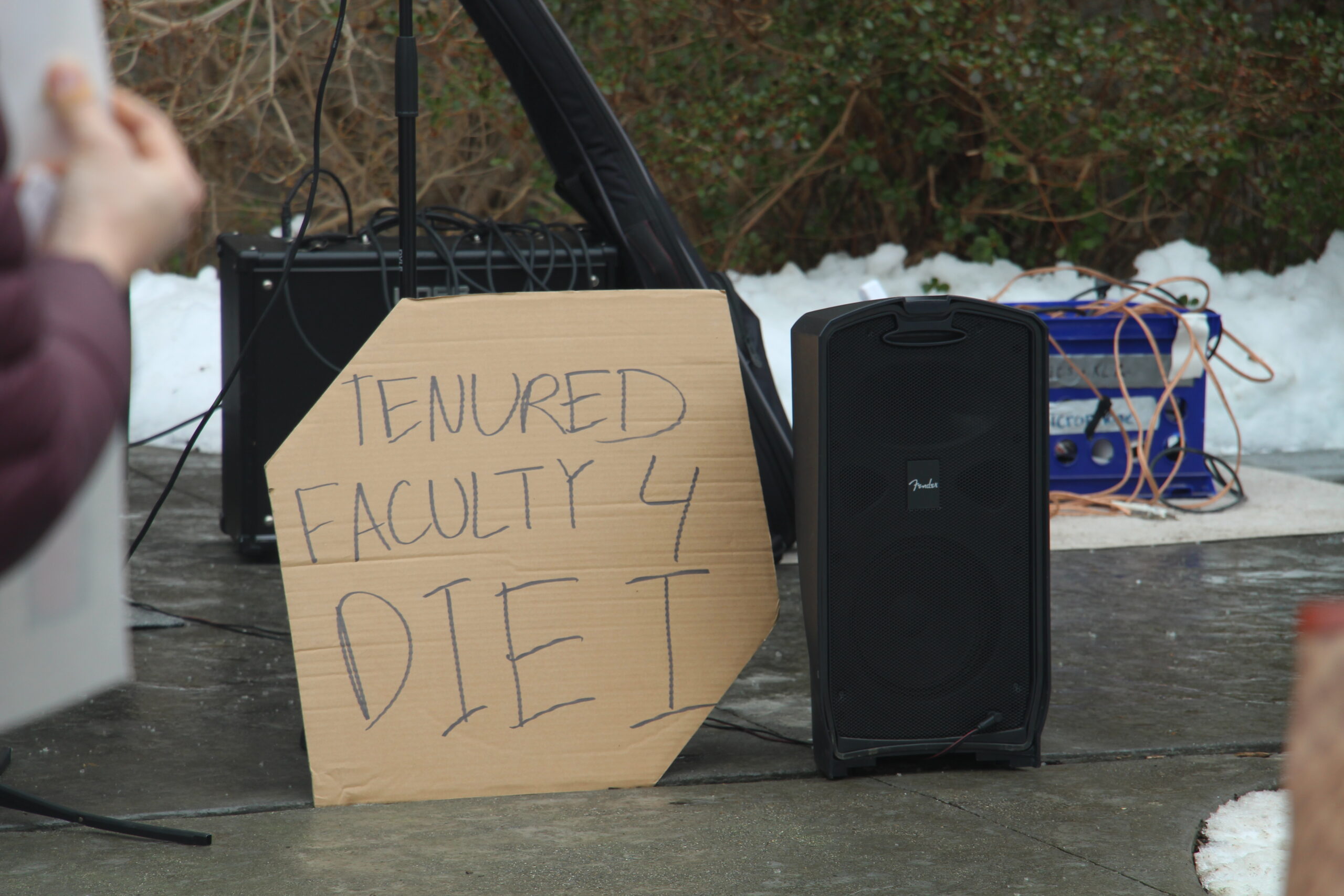From “net zero” to “sustainable design,” almost everyone here on campus has certainly heard about Conn’s efforts to go green. If not through grandiose statements, such as Conn’s goal to go carbon neutral by 2030, then through simply existing here at the college. Walk around campus, and you will quickly come across sustainable solutions students can take advantage of, such as water bottle fillers, laundry sheet dispensers, and reusable takeout containers. Though there are many environmental clubs and groups here on campus, there is one opportunity that remains, to an extent, shrouded in mystery– the Environmental Model Committee (EMC).
The EMC is made up of a collection of professors and other faculty from various departments. The current Faculty Director of the Office of Sustainability, Doug Thompson, has chaired the committee four times and has over fifteen years of experience on it. He describes it as “more of a think tank than a policy committee.” It is an open forum – essentially, anyone can participate and propose ideas, though voting is limited to faculty and students with specific roles. According to Thompson, it is not a contentious group, nor one where nasty debates or disagreements should be expected – open-ended discussions are common, and different perspectives and ideas are welcome and desired.
Established in 1969 as an informal group, it was not until about twelve years ago that the EMC began to meet more regularly. It is important to note, as Thomspon does, that the environmental movement in the United States was just beginning when the committee was first established, and any examination of its history should take this into account. The original focus was simple– to create a group that focused on environmental issues on campus– and this initiative continues into the work of today’s EMC. According to SGA Chair of Sustainability Liam Rimas ‘23, the committee’s focus has remained very much the same throughout COVID, even as it has evolved to address issues created by the pandemic. It has continued to be an open discussion space despite the challenges of the last few years, and will remain on this path.
This semester, the committee is chaired by Professor Jane Dawson, who was elected to the position very recently. According to Professor Derek Turner, who is also currently serving on the committee, the structure of the meetings generally depends quite heavily on the chair. Generally, it consists of discussing an agenda, speaking on various issues, and planning for the next meeting. At this point, the committee meets once a month for an hour– meaning meetings generally have to cut right to the chase.
Currently, the most important issues the committee is tackling involve how to meet the goal of net-zero carbon emissions set forth by the college, and whether the college is on track to meet this goal by 2030 as planned. The lack of sustainability initiatives in the proposed renovations of Crozier-Williams is currently a major concern – not only because the proposed additions would make the goal of net-zero much harder to achieve, but because the carbon offsets that Conn purchased years ago to address the current lack of sustainability of the building are soon set to expire.
Beginning again this year, the EMC is meeting in Blaustein, a shift away from the Zoom platform it has utilized in the past few years. Though student involvement has varied in the past, it has always been open to interested community members. The next meeting, for anyone interested, will take place on February 24th in Blaustein 211 at 9am.
While the EMC does not have any formal relationships with other environmental organizations on campus, it is an open forum, and anyone– including members of other groups– are welcome to attend and engage in discussions. According to Professor Turner, student voices are extremely helpful and important in determining issues to focus on– after all, we are here for four years, and do have an incredibly significant impact on how the College operates. He encourages students, during their time here, to try to learn as much as possible about the way Conn works– and the EMC is a great place to do so. Ultimately, student voices have a lot of power, and with power comes the possibility for real change.
While Rimas became involved in the committee primarily through running for SGA, it is by no means limited to students with leadership positions. All are welcome, and encouraged, to attend– regardless of who they are or any positions they hold. The EMC is not going away, and neither are sustainability issues— it has, and will, evolve with them. As members of the community– will we evolve, and get involved, too? •










